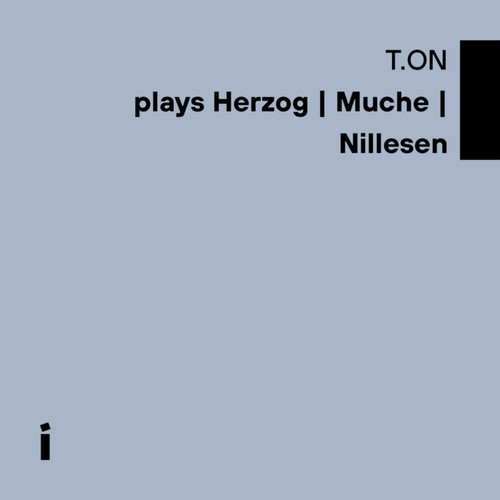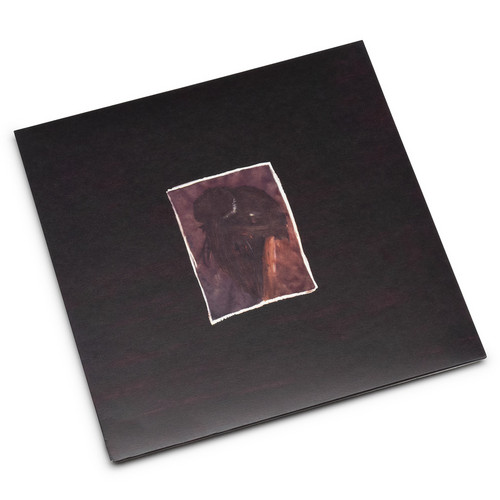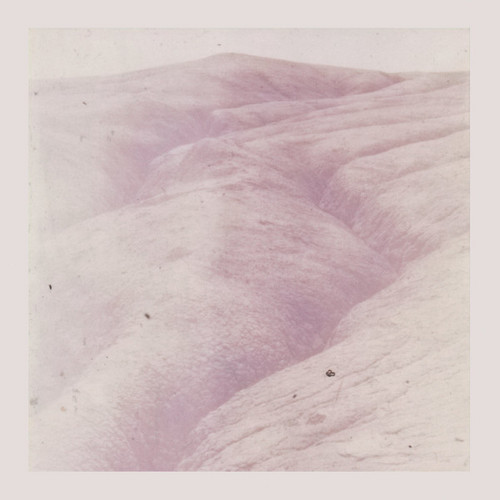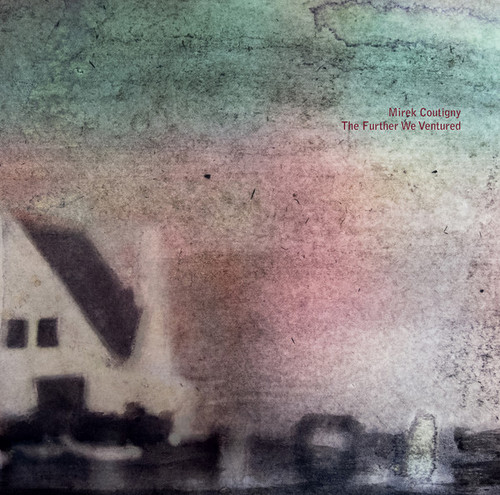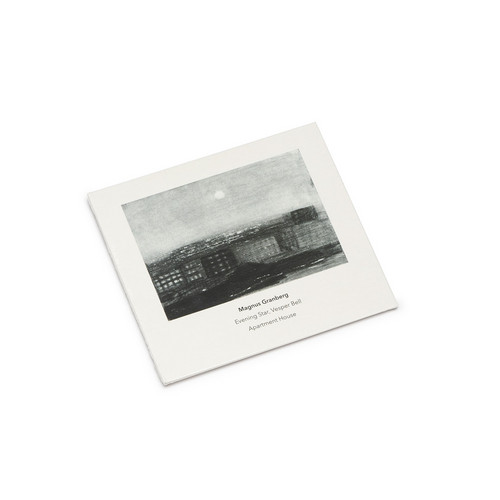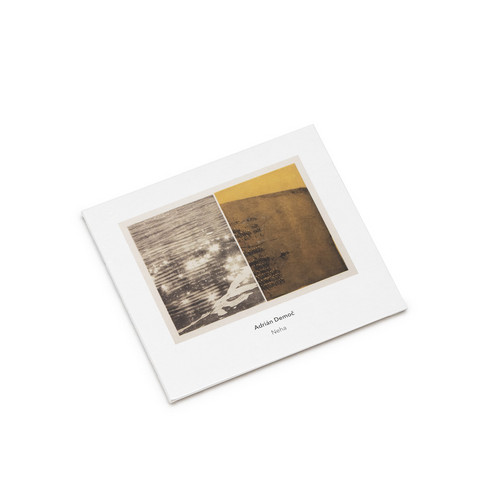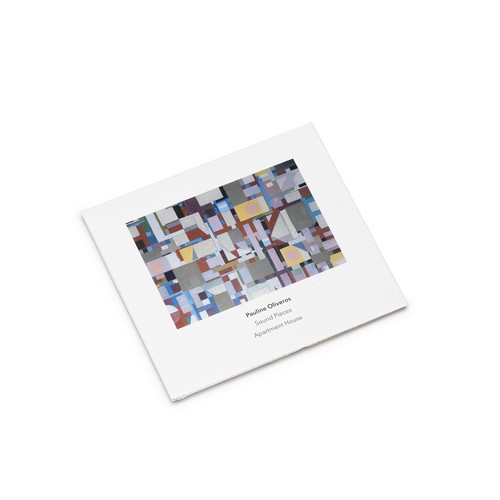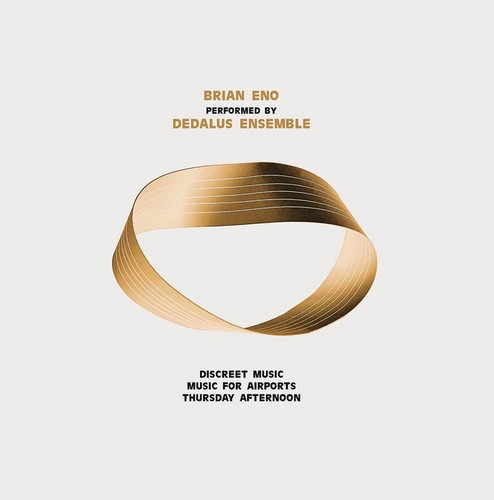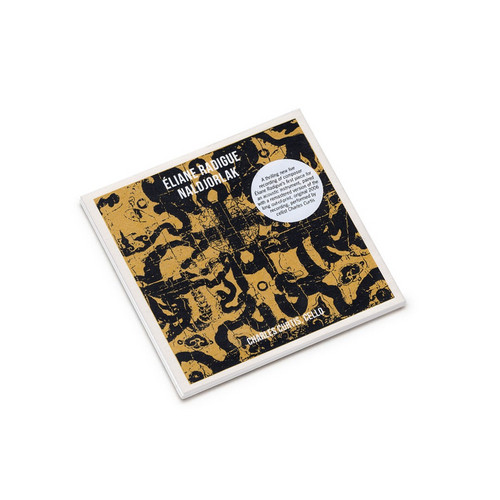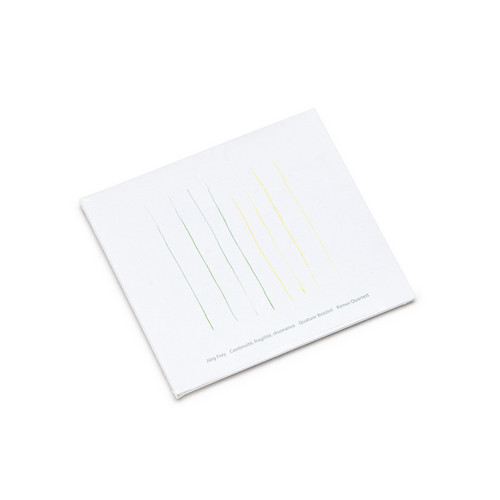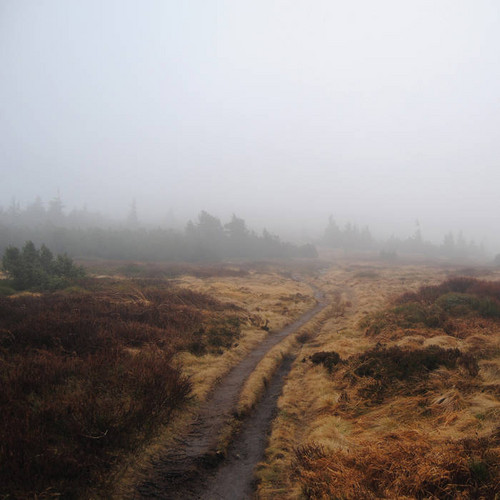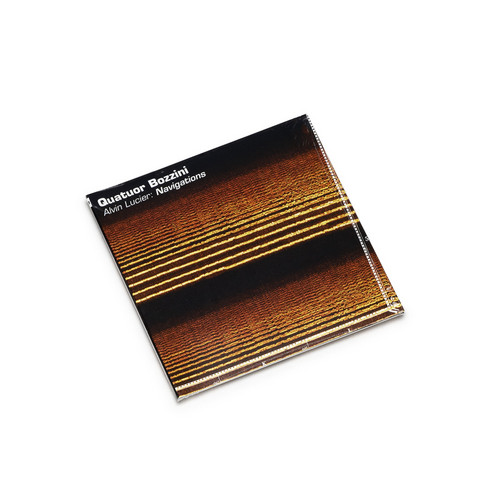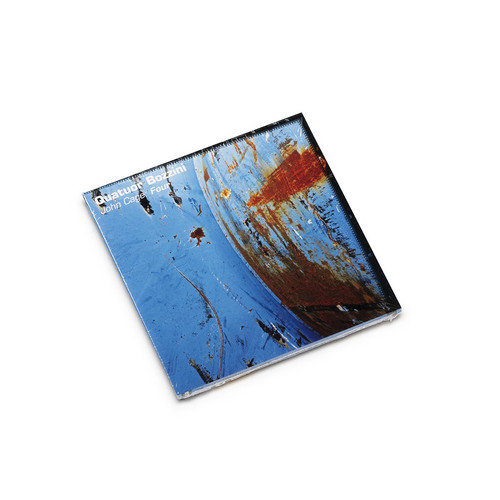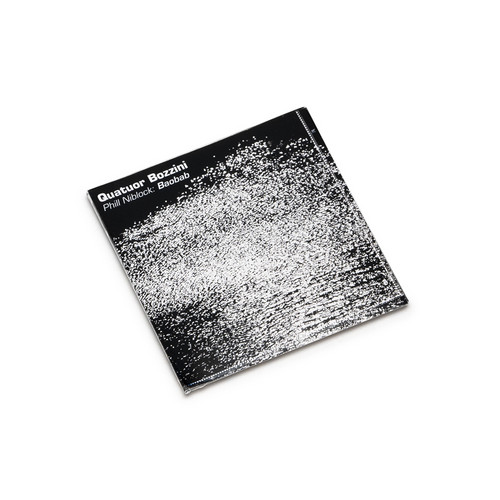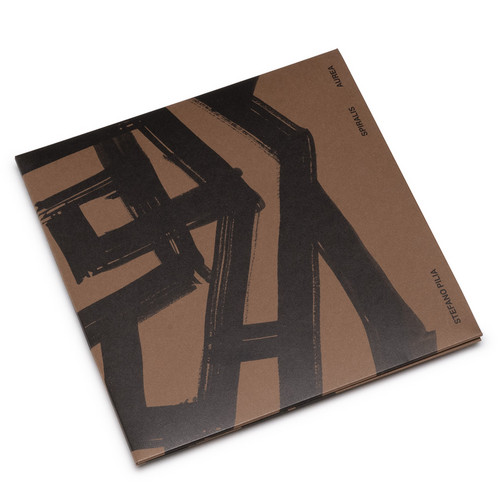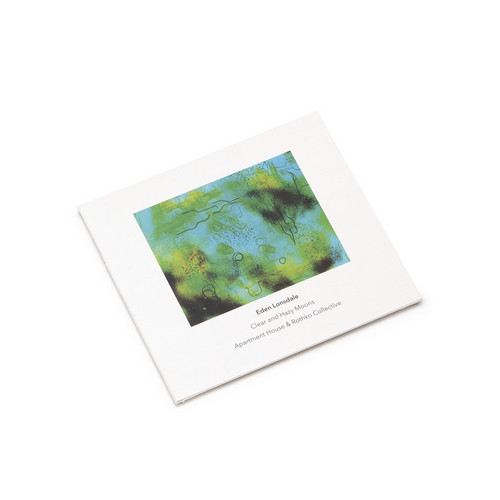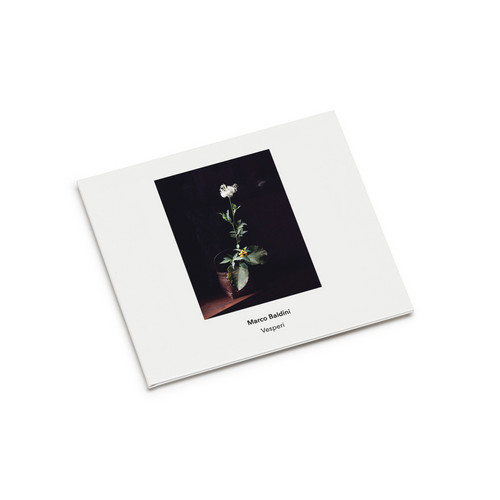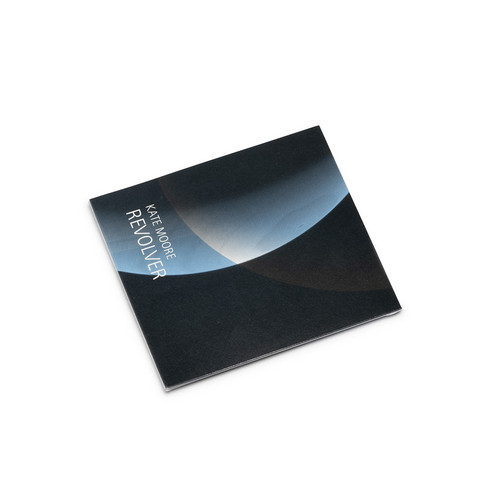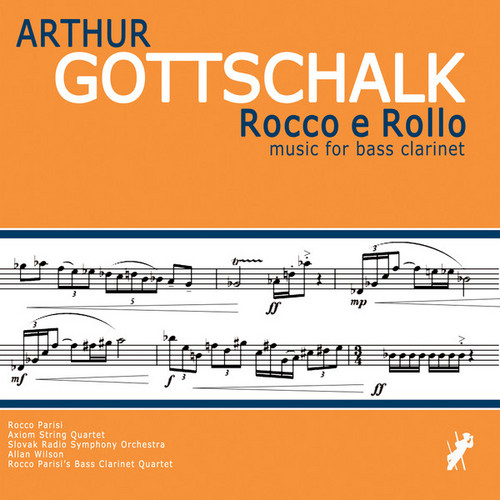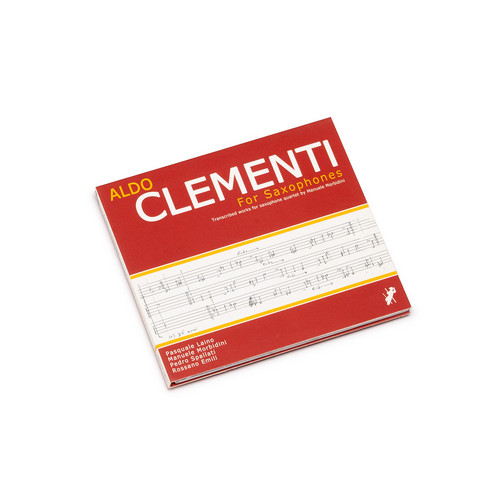plays Herzog | Muche | Nillesen
impakt Records presents the new record by T.ON "plays Herzog | Muche | Nillesen" with Constantin Herzog (double bass), Matthias Muche (trombone) and Etienne Nillesen (extended snare drum).
Sketches For Francis
"Atmospheric music that envelops you and transports you to wide linear horizons, distant, desert and strange lands. I particularly liked the organic sounds of the introduction of Sketch I." - Christine Ott
Theodore Wild Ride
Theodore Wild Ride started from the collaboration between French keyboardists Christine Ott (regular collaborator of Yann Tiersen, Tindersticks, Oiseaux-Tempête...), Mathieu Gabry (Snowdrops) and Oed player Ophir Levy. Theodore Wild Ride celebrates musical freedom and redefines the relationship between space and time with a special, unexpected orchestration.
The Further We Ventured
In recent years, pianist and producer Mirek Coutigny has worked on his own world of sound with electronic and acoustic instruments. He improvised on sketches that he wrote over the last 10 years and reworked them for piano, strings, percussion and electronics.The common thread running through “The Further We Ventured” is a fascination for the “suburbs”, more specific, the contrast between the often similar facades and the diversity of stories behind those facades.This is also reflected in the co…
Evening Star, Vesper Bell
Evening Star, Vesper Bell by Magnus Granberg with Apartment House is a nearly hour-long meditation bridging composed structures and improvisational nuances. Drawing on remnants from Schubert and Cole Porter, the ensemble crafts an intricate tapestry of sound, embracing openness, patience, and detailed interplay. It is a work that rewards repeated, attentive listening and the discovery of subtle, shifting textures.
Neha
Neha is an album by Adrián Demoč featuring the Slovak Radio Symphony Orchestra and Ostrava New Orchestra. Each work extends beyond twenty-five minutes, exploring soft layers of orchestral sound, calmly repeating motifs, and silences that articulate the music’s emotional contour. The pieces are defined by their meditative atmosphere and gradual, unforced transformations.
Sound Pieces
Sound Pieces is a collection from Pauline Oliveros performed by Apartment House. The album spans seven works from 1975 to 1998, comprising both open text scores and a structured seven-movement composition, "Tree/Peace." The ensemble channels Oliveros’ philosophy of deep listening and interpretive openness, delivering performances full of nuance, attentive silence, and subtle interplay.
Brian Eno Performed by Dedalus Ensemble
With Discreet Music (1975), Music for Airports (1978), and Thursday Afternoon (1985), Brian Eno invented a new music genre, ambient music, which he defined as "able to accommodate many levels of listening attention without enforcing one in particular; it must be as ignorable as it is interesting." These versions performed and arranged by Dedalus Ensemble, according to the musicians and the critics who listened to it, goes beyond what you expect from it. A mental base that takes you far away. One…
Naldjorlak
Saltern presents a thrilling new live recording of Naldjorlak for solo cello, composer Éliane Radigue’s first piece for an acoustic instrument, paired with a remastered version of the long out-of-print, original 2006 recording. Composed in 2005 in close collaboration with cellist Charles Curtis, Naldjorlak marked a striking shift in the music of Radigue, who has since composed exclusively for instrumentalists with her celebrated Occam series. This album brings together two complete performances …
Continuité, fragilité, résonance
'Continuité, fragilité, résonance' is a 51-minute piece written by Jürg Frey in 2020-2021 for octet: string and saxophone quartets. The Montréal-based Quatuor Bozzini and the Bern-based Konus Quartett premiered the piece in September 2021, and later recorded it for this album with the presence of the composer, during a three-day recording session in August 2022 at the Auditorium of Zentrum Paul Klee in Bern, Switzerland. Both quartets have premiered other works of Frey's in the past and have a d…
L’Occhio Del Vedere
L’Occhio Del Vedere is a one-hour piece by the trio of Giovanni Di Domenico (piano), Silvia Tarozzi (violin, 1/16th of a tone tuned violin), and Emmanuel Holterbach (large frame drum). In July 2022, while Di Domenico was working on an artistic residency at GMEA in Albi, France, he and Tarozzi and Holterbach made a trio recording, which was later completed by Di Domenico as a one-hour piece. Within a ‘triptych’ structure framework, sparse melodies discreetly and repeatedly emerge from the three i…
Alvin Lucier: Navigations
“It is not enough just to play the right notes at the right time in the right way; one must also have the right consciousness. It places the performer in the role of explorer of the interior in order to produce, and being still in order to be active.” — Pauline Oliveros "These words, spoken by Pauline Oliveros, remind us of how fundamental an influence Alvin Lucier has had on the development of new music and its interpretation; they remind us of our role as explorers of sound, and of the irresis…
Four
A new vision of John Cage, via his complete works for string quartet. Spanning forty years of the artist’s activities, these three masterworks illuminate the different stylistic periods in the output of this 20th century icon.
Baobab
"Originally written for orchestra, Phill Niblock’s Disseminate (1998) and Baobab (2011) were arranged by the composer specifically for the Bozzini Quartet, or rather, for ‘multiples’ of the Quartet: twenty different tracks are mixed in each piece — twenty different instruments, the equivalent of five string quartets. The music is essentially a work on the shifting nature of overtone patterns that arise from acoustic instruments. As composer Robert Ashley convincingly argued, these pieces inscrib…
Spiralis Aurea
Venturing into untapped realms of creative exploration, the Genoa born, Bologna based, guitarist and electroacoustic composer, Stefano Pilia, returns to Die Schachtel with “Spiralis Aurea”, a double LP of material that intertwines traces of sacred geometry, collective experience and elusive connections between nature and human kind.
Clear and Hazy Moons
Another young composer who you’ve probably not heard of, but whose music you really should get to know. Four stunning pieces, three played by Apartment House, and one by the Rothko Collective. Brilliant music that really shouldn’t be possible from someone so young.
Vesperi
Another Timbre is back with yet another incredible statement from the contemporary landscape of experimental sound, “Vesperi”, the debut album by the Italian composer Marco Baldini from the Florence-based ensemble, Blutwurst. A striking series of minimal works for acoustic instruments, drawing their inspiration from early music and North Indian (Hindustani) classical music, and executed by two remarkable ensembles - a quartet of two cellos and two double bass, and a trio of cello, double bass, a…
Revolver
*2023 stock* Inspired by the kinetic physicality and aesthetics of balance found in Ken Unsworth's work, the music embodies a feeling of suspension between movement and stasis. Evolving and revolving melodies, poised skilfully in polyrhythmic structures, the music creates an intoxicating and emotional impression. There is a feeling of constant motion and flow of sonic currents that typifies much of Kate Moore's music.
The music shifts from the material world, the gradually shifting stone-like cy…
Rocco e Rollo
*In process of stocking. 2023 stock* "Gottschalk’s works and if you are looking for new-to-you works, this album would be a welcome one to the audio library. The title work of the album starts an eerie flicker of sound from hollow trills that swell to the orchestra’s entrance with a similar character and trills echoed. As the first movement continues, Parisi’s aptitude for both conventional and contemporary techniques are apparent with technical passages sounding effortless as he spans the range…
For Saxophones
*In process of stocking. 2023 stock* "As a chamber music ensemble the saxophone quartet has a surprisingly long pedigree. The first work for it was written in 1857, less than twenty years after Adolphe Sax invented it, a Saxophone Quartette Club was founded in New York in 1879, and by 1896 a California Saxophone Quartet was on tour. While the modern saxophone quartet is now most likely to be associated with the jazz tradition, the standard ensemble of soprano, alto, tenor and baritone saxophones…
